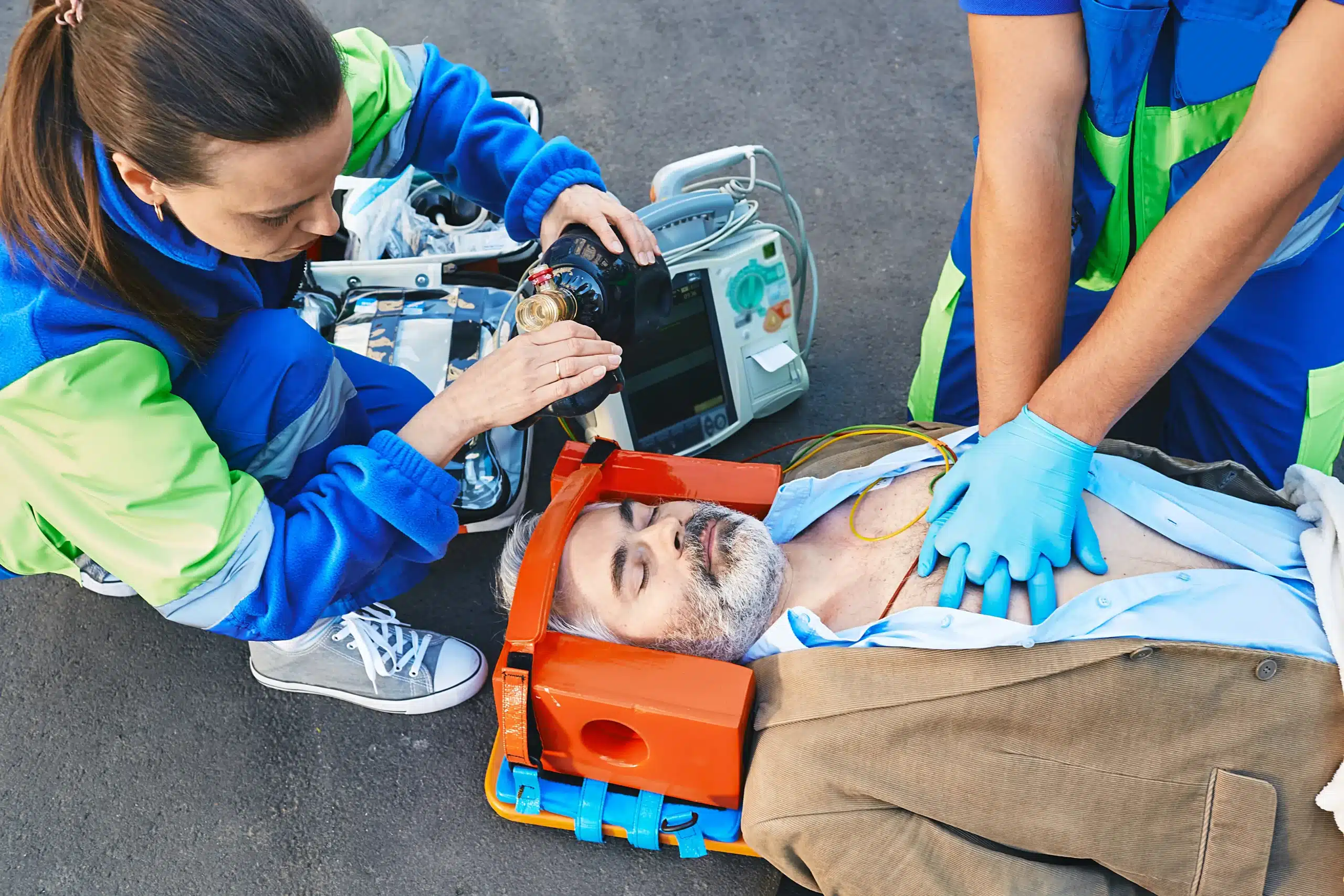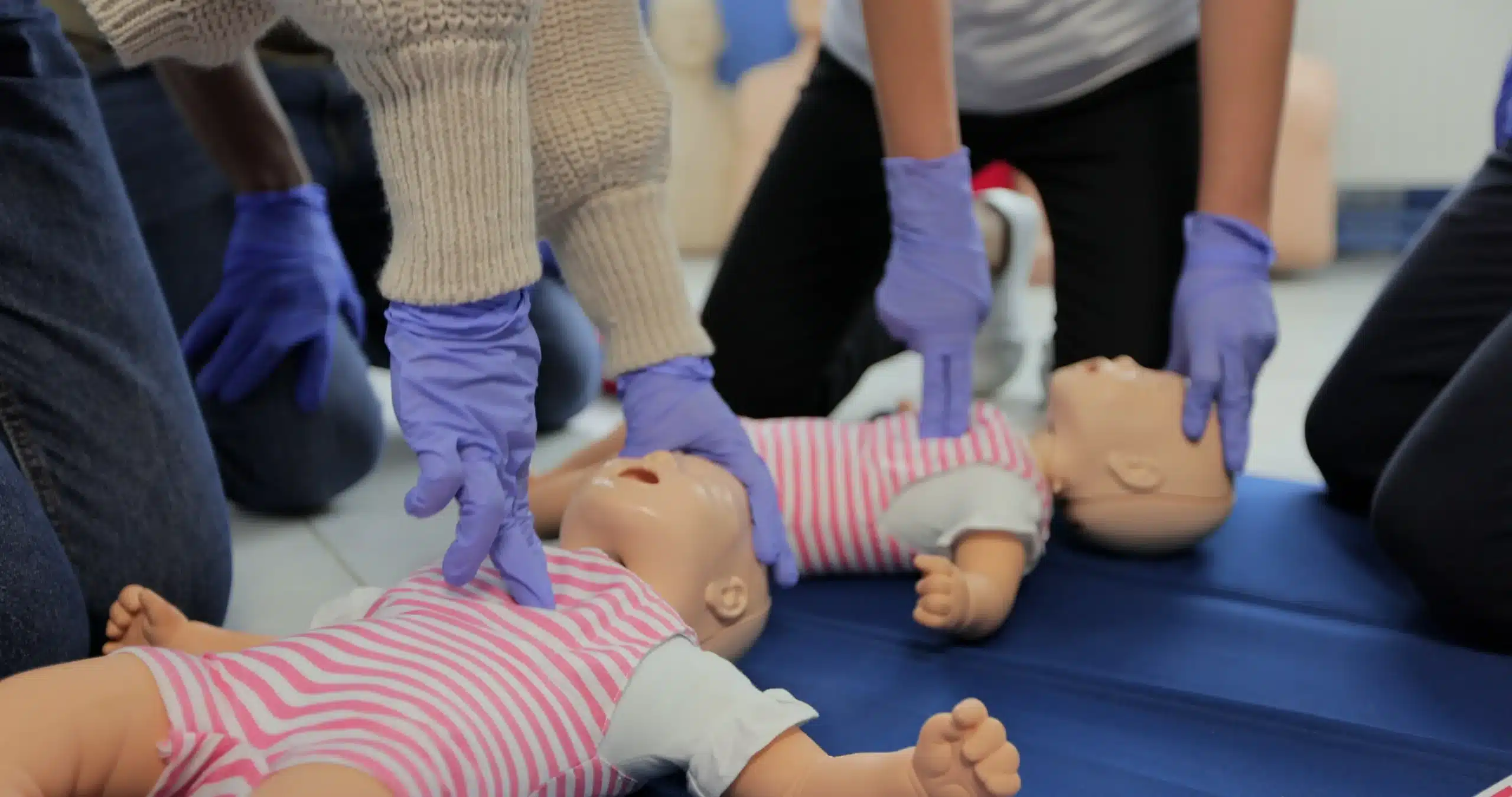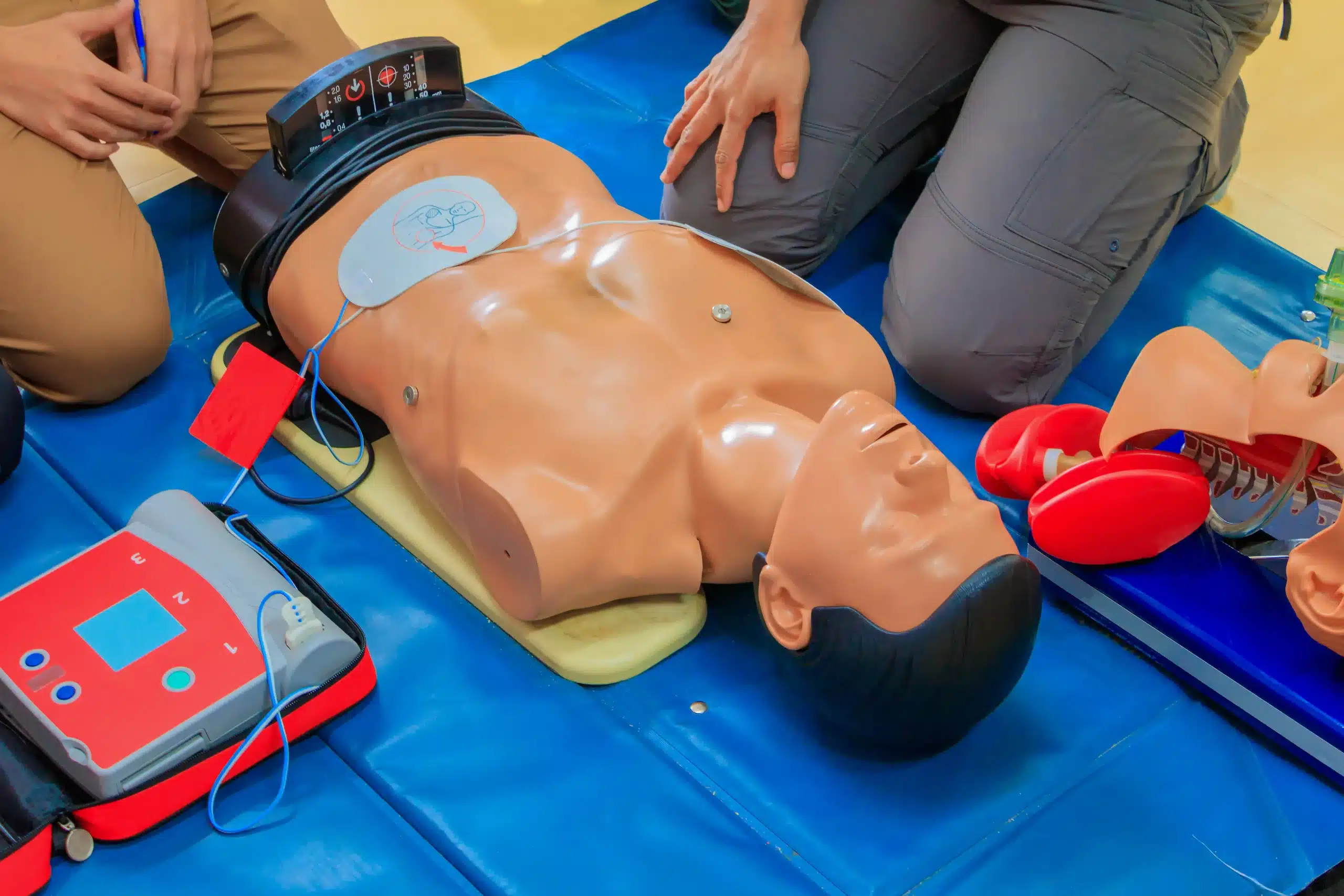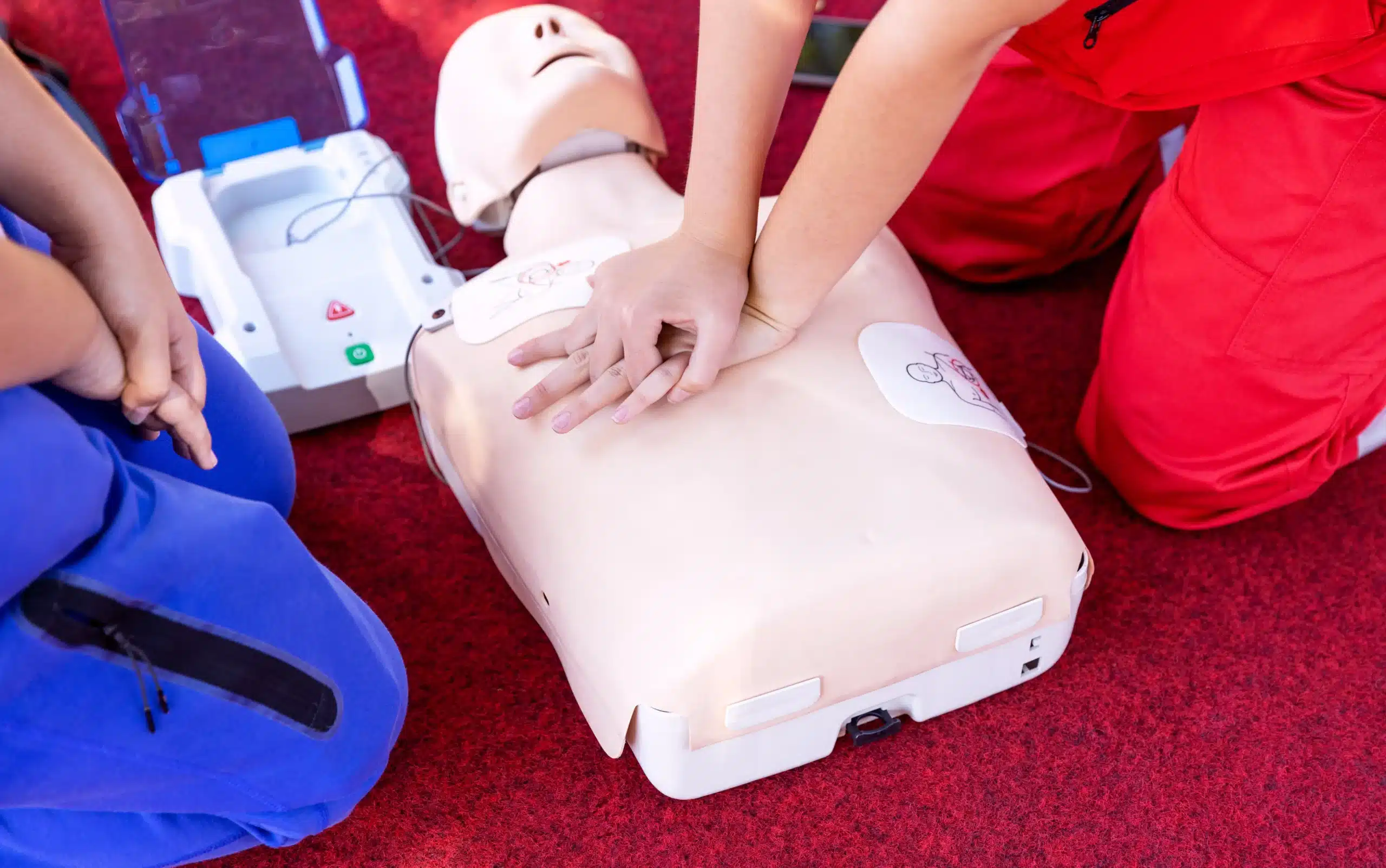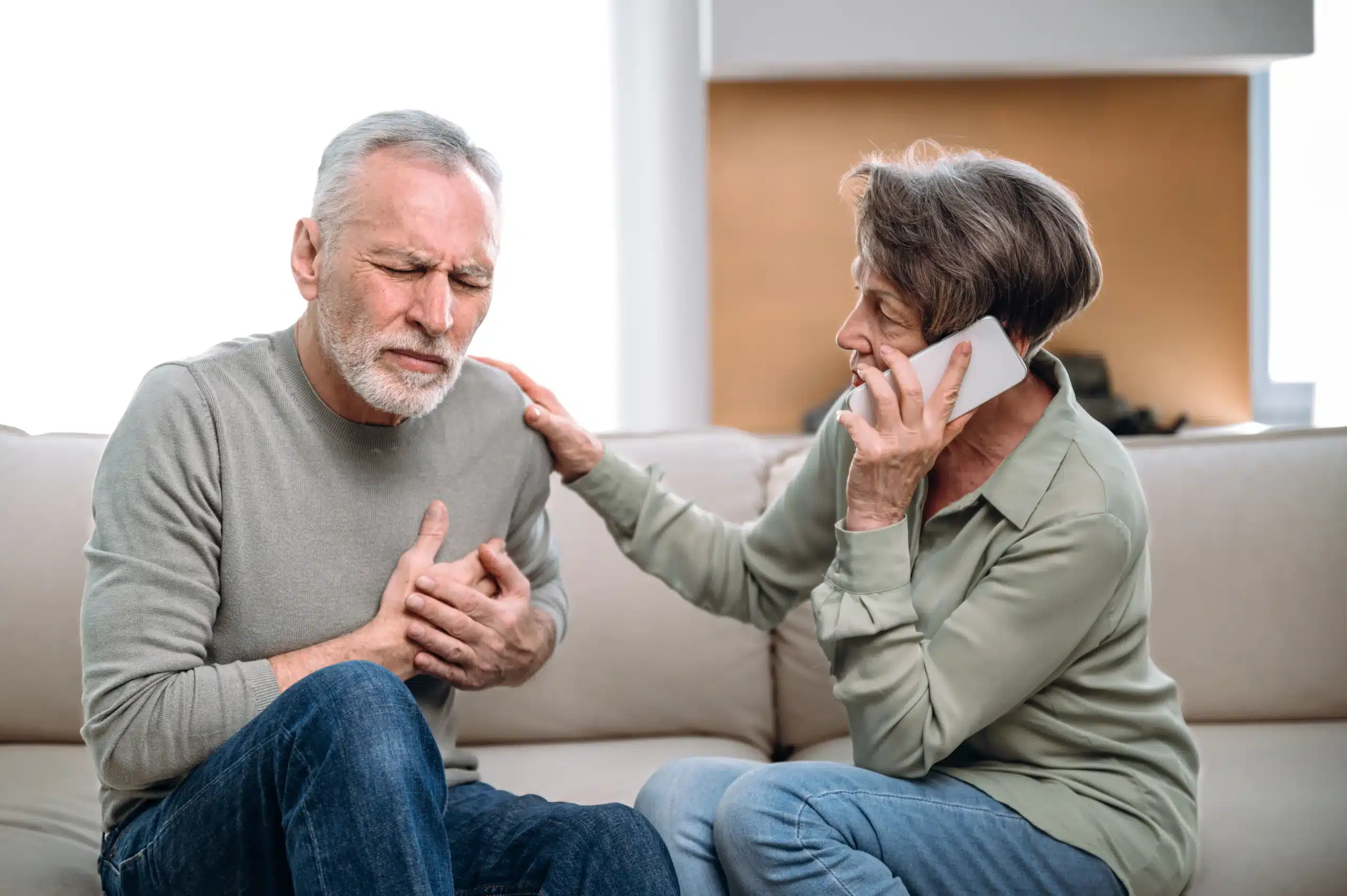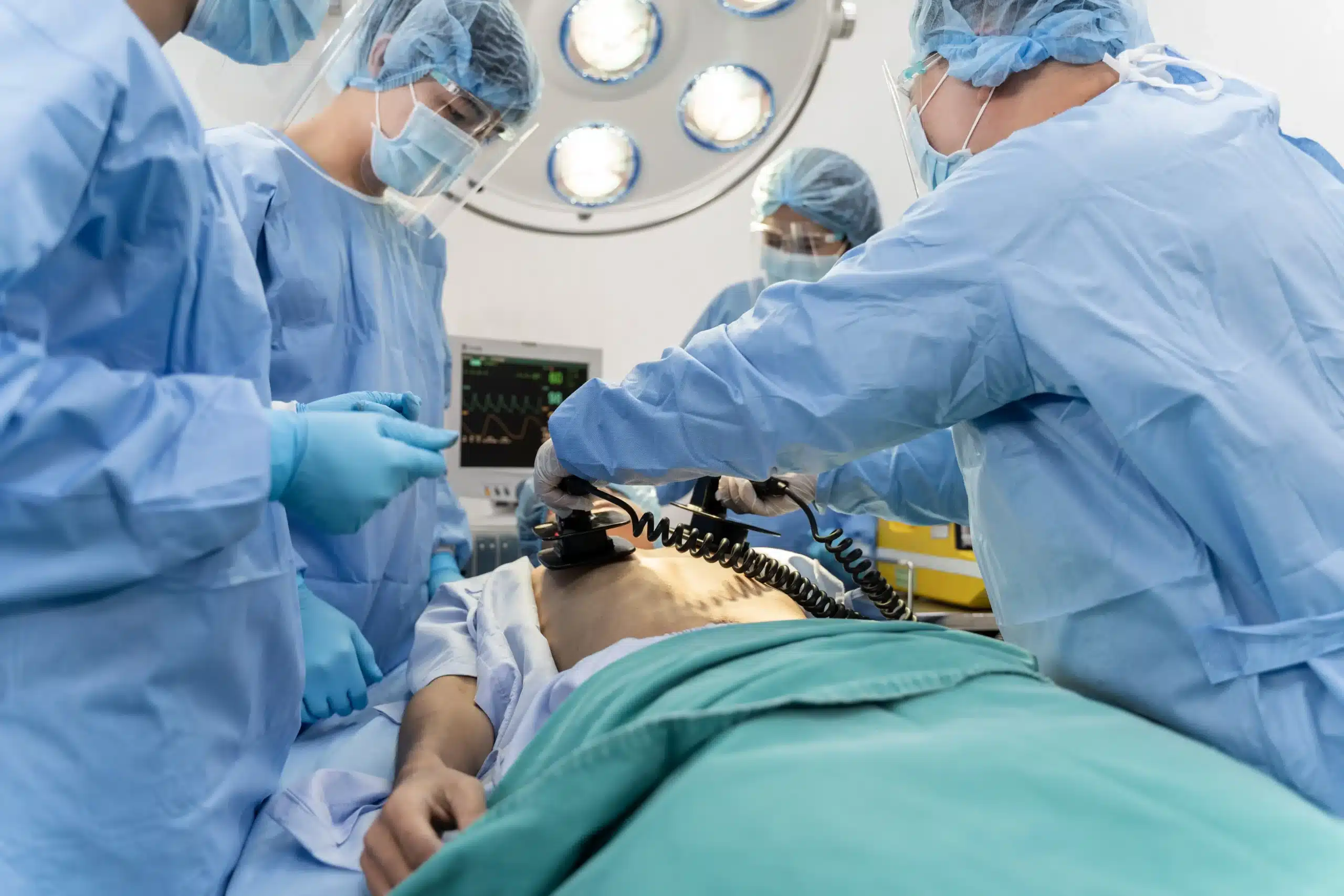Empowering yourself with life-saving skills starts with finding the right CPR courses in San Jose. This guide acts as your compass, leading you through the various options available and helping you choose the perfect course to match your goals. Whether you’re a healthcare professional seeking to maintain your certifications, a caregiver looking to enhance your skills, or simply someone who wants to be prepared for emergencies, CPR training provides the confidence and competence to act quickly and effectively. We’ll explore the different types of CPR courses in San Jose, discuss cost considerations, and highlight reputable training providers. Let’s get you started on your journey to becoming a life-saver.
Key Takeaways
- CPR training saves lives: Equipping yourself with CPR skills allows you to respond effectively during medical emergencies. Explore various CPR and First Aid courses, including specialized certifications like BLS, ACLS, and PALS, to find the best fit for your needs.
- Pick a learning format that works for you: From traditional in-person classes to flexible online options and blended learning, choose a CPR course format that suits your schedule and learning preferences. Hands-on practice is crucial for mastering CPR techniques.
- Select a certified training provider: Ensure your CPR certification comes from a reputable organization recognized by the American Heart Association or a similar institution. Compare course offerings, costs, and schedules from different providers to make an informed decision. Inquire about potential discounts.
What are CPR Courses in San Jose?
CPR courses in San Jose equip you with the life-saving skills to respond to cardiac arrest and other medical emergencies. These courses cover essential techniques like chest compressions, rescue breaths, and how to recognize the signs of a heart attack or stroke. Whether you’re a healthcare professional, a concerned parent, or simply someone who wants to be prepared for the unexpected, CPR certification empowers you to make a real difference. Find the right course type and format in San Jose, from basic community CPR to advanced professional certifications.
CPR Course Types
Safety Training Seminars offers a range of American Heart Association (AHA) certified courses in San Jose, including BLS, ACLS, PALS, and First Aid. These courses cater to different levels of expertise, from basic life support for community members to advanced cardiac life support for healthcare providers. Whether you’re a teacher, parent, or someone looking to enhance their life-saving skills, CPR training ensures you are prepared to act swiftly and confidently in critical situations. For those seeking a fast and efficient certification process, consider our RQI classes.
Why Healthcare Professionals Need CPR Certification
If you’re a healthcare provider, BLS, ACLS, or PALS certification may be required. These certifications demonstrate a higher level of proficiency in life support techniques and are often essential for employment in hospitals, clinics, and other healthcare settings. The American Heart Association’s Healthcare Basic Life Support (BLS) certification is primarily required for professionals working directly with patients. These certifications not only fulfill job requirements but also empower healthcare professionals to provide the highest standard of care during emergencies. Contact us to learn more about our low price guarantee and find the right course for you.
Find Your CPR Course
Finding the right CPR course depends on your individual needs and career goals. Whether you’re a healthcare professional, a parent, or just want to be prepared, there’s a class for you. Let’s explore some common CPR courses available in San Jose.
BLS Courses
BLS certification from the American Heart Association is essential for healthcare professionals. This course teaches fundamental skills for responding to life-threatening emergencies. You’ll learn high-quality CPR for adults, children, and infants, how to use an AED, and how to help someone who is choking. BLS certification is a must-have for anyone in healthcare. For additional resources, check out our Northern California CPR directory.
ACLS Courses
ACLS certification builds on the foundation of BLS. Designed for healthcare professionals involved in cardiovascular emergencies, ACLS courses cover advanced techniques for managing cardiac arrest, stroke, and other related emergencies. This course expands on BLS skills and adds a deeper understanding of pharmacology, ECG interpretation, and teamwork in critical situations.
PALS Courses
PALS certification focuses on responding to medical emergencies in infants and children. This course covers a range of skills, from recognizing early signs of respiratory distress to managing cardiac arrest in young patients. PALS certification is crucial for healthcare providers working in pediatrics, emergency medicine, and intensive care. Safety Training Seminars offers various courses, including our efficient RQI program.
First Aid & CPR Courses
Combining First Aid and CPR training offers comprehensive emergency preparedness. These courses teach you to handle various situations, from minor injuries to life-threatening emergencies. First Aid and CPR certification is valuable for everyone and empowers you to provide immediate care while waiting for professional help. Contact us to learn more about our combined courses and our low price guarantee.
CPR Course Costs & Savings
CPR certification is an investment in your skills and ability to respond to emergencies. Understanding what influences CPR course costs helps you find a class that fits your budget and learning needs. Let’s break down average prices, cost variables, and potential savings.
Average Course Prices
CPR course fees in Northern California, much like in Los Angeles, differ based on the training provider and the type of course. A basic CPR class may average around $20 in some areas, but prices in San Jose and surrounding areas can vary. Checking with various providers, like Safety Training Seminars, for current pricing is always recommended. Knowing the average cost in your area gives you a good starting point for comparison. You can often find this information by browsing local CPR training websites or contacting providers directly. Safety Training Seminars offers a directory for CPR classes in Northern California.
Factors Affecting Costs
Several factors contribute to the overall cost of a CPR course. The type of certification you pursue—such as Basic Life Support (BLS), Advanced Cardiovascular Life Support (ACLS), or Pediatric Advanced Life Support (PALS)—will influence the price. More specialized certifications typically involve more comprehensive training and materials, resulting in a higher overall cost. The course format also plays a role. In-person classes, online courses, and blended learning options each have different pricing structures. Additionally, the training provider’s curriculum and included materials can impact the final price. Courses that include First Aid or AED training will likely have a higher price tag.
Group Discounts & Offers
If you’re training with a group, inquire about group discounts. Many CPR training providers offer reduced rates for group bookings. Keep an eye out for special offers, too. Some providers may offer discounts for early registration or referrals. Checking a provider’s website for a low-price guarantee or contacting them directly, like Safety Training Seminars, can help you uncover potential savings. Don’t hesitate to ask about available discounts.
Get CPR Certified
So, you’re ready to learn CPR? Great! This section covers everything you need to know about getting certified, from how long your certification lasts to what you should know before signing up for a class.
How Long is CPR Certification Valid?
CPR certifications are typically valid for two years. This standard applies to most organizations, including the American Heart Association. Staying current with the latest guidelines and techniques is critical for providing effective care in emergencies, so make sure you renew your certification when the time comes.
Get & Renew Your Certification
Getting certified is easier than you think! Many training centers, including our San Francisco location, offer same-day CPR certification after you successfully complete the skills assessment. This means you can walk in, learn the skills, pass the test, and be ready to respond to an emergency that same day. For healthcare providers looking to renew, programs like the American Heart Association’s RQI program offer a flexible and efficient option. Other organizations, like the Red Cross, also offer various renewal courses for certifications like BLS, ACLS, and PALS.
Course Prerequisites
Before jumping into a CPR class, it’s wise to check for any prerequisites. Some courses, especially those designed for healthcare providers, might require existing certifications like BLS, ACLS, or PALS. Check with your chosen training center—Safety Training Seminars is a great place to start—to understand the specific requirements for your desired course. We offer a range of options to meet different needs and experience levels, so feel free to reach out!
CPR Training Formats
CPR courses come in several formats, each designed for different learning styles and schedules. Let’s explore the most common options: in-person, online, and blended learning. Choosing the right format can significantly impact your learning experience, so consider what works best for you.
In-Person CPR Classes
In-person CPR classes offer hands-on learning guided by expert instructors. These classes are typically held in small groups, allowing for personalized feedback and ample opportunities to ask questions. The focus on practical skills makes in-person training essential for mastering the techniques required for effective CPR. You’ll work with training manikins and practice real-life scenarios, building confidence and competence in a supportive environment. If you learn best through direct interaction and prefer practicing with an instructor, in-person training might be ideal.
Online CPR Courses
For busy schedules or those who prefer self-paced learning, online CPR courses offer a convenient alternative. These courses deliver the same comprehensive curriculum as in-person classes but with the flexibility of online learning. Make sure your online certification is from a reputable organization accredited by the American Heart Association (AHA) or a similar recognized body. Online CPR courses often include videos, interactive exercises, and downloadable resources. This format lets you study whenever and wherever it suits you.
Blended Learning
Blended learning combines online coursework with in-person skills practice. This hybrid approach lets you complete the theoretical parts online at your own pace, then attend a hands-on session to practice with a certified instructor. Blended learning offers a flexible yet comprehensive learning experience, ensuring you grasp both the theory and practical application of CPR. This format can be particularly helpful for those who appreciate online learning but also value hands-on training.
Best CPR Course Providers in San Jose
Finding the right CPR class can feel overwhelming with so many options. To simplify your search, I’ve compiled a list of reputable CPR course providers in San Jose. This list includes a variety of choices, from nationally recognized organizations to local training centers.
Safety Training Seminars
Safety Training Seminars offers a range of American Heart Association (AHA) certified courses, including BLS, ACLS, PALS, and First Aid. They focus on providing convenient daily classes in San Jose and surrounding areas like Santa Clara and Sunnyvale. See their course schedule to find a class that works for you. They also offer a streamlined recertification process through their innovative RQI program.
American Red Cross
The American Red Cross is a trusted name in emergency preparedness, offering CPR and First Aid classes in San Jose. They offer flexible learning options, including in-person and blended online/in-person formats. Both options provide a two-year certification.
American Heart Association Training Centers
Several training centers, including the Emergency and Health Training Center, offer AHA-certified CPR, BLS, ACLS, PALS, and First Aid classes throughout San Jose and the Bay Area. With locations in Milpitas and Hayward, they offer accessible training for those outside of San Jose. Learn more about AHA Training Centers on the AHA website.
Emergency and Health Training Center
The Emergency and Health Training Center provides AHA-certified courses in CPR, BLS, ACLS, PALS, and First Aid throughout San Jose and the Bay Area. They emphasize comprehensive training that aligns with industry standards.
CPR Training Center
The CPR Training Center in San Jose offers AHA-certified courses in BLS, ACLS, PALS, and First Aid. They strive to offer convenient certification options for those in the San Jose area. With many training centers offering similar programs, comparing options to find the best fit for your schedule and learning style is always recommended.
Choose the Right CPR Course
Finding the right CPR course comes down to understanding your needs and comparing what different providers offer. Whether you’re a healthcare professional required to maintain your certification, a parent wanting to be prepared for emergencies, or just someone interested in learning this vital skill, choosing the right course is important.
Assess Your Needs & Goals
First, think about why you want CPR certification. Are you a healthcare professional? If so, you’ll likely need an American Heart Association recognized certification, like BLS. Caregivers, teachers, or coaches might want a combined CPR/First Aid course. Understanding your goals helps narrow your search.
Compare Courses
Once you know what type of certification you need, compare courses. Look at what different CPR training providers in San Jose offer. Some specialize in healthcare provider courses, while others focus on the general public. See what’s available and how it fits your needs. Also, check if the provider offers group discounts, helpful if you’re coordinating training for a group. Hands-on training is essential for building confidence and competence, so find providers who emphasize practical skills.
Key Factors to Consider
When making your final decision, consider these key factors:
- Certification type: Do you need BLS, ACLS, PALS, or general CPR/First Aid certification? Safety Training Seminars offers a range of AHA-certified courses.
- Learning style: Do you prefer in-person instruction, online learning, or a blended approach? Think about what helps you learn best.
- Schedule: Look for courses offered at times that work for you. Many providers offer weekday and weekend options. Contact us to find a schedule that fits your needs.
- Cost: CPR course costs vary. Compare pricing and look for discounts. Check our low price guarantee.
By carefully considering these factors, you can find the right CPR course in San Jose that meets your needs and sets you up for success.
Related Articles
- CPR Certification in San Jose: Your Complete Guide – San Francisco Bay Area CPR Classes
- CPR Training in Northern California: A Complete Guide – San Francisco Bay Area CPR Classes
- Online ACLS Classes in San Jose: Your Guide – San Francisco Bay Area CPR Classes
- CPR Renewal in San Jose: Your Complete Guide – San Francisco Bay Area CPR Classes
- CPR Classes in San Francisco: A Complete Guide – San Francisco Bay Area CPR Classes
Frequently Asked Questions
How do I choose the right CPR class for me? Think about why you need CPR training and what kind of certification you’re looking for. If you’re a healthcare provider, you’ll likely need a certification like BLS, ACLS, or PALS. If you’re a parent, teacher, or coach, a combined CPR/First Aid course might be more suitable. Consider your learning style and schedule, too. Do you prefer in-person classes, online learning, or a blended approach? Finally, compare costs and look for any available discounts.
What’s the difference between BLS, ACLS, and PALS? BLS (Basic Life Support) teaches fundamental life-saving skills, including CPR, AED use, and choking relief. ACLS (Advanced Cardiovascular Life Support) is for healthcare providers who manage cardiovascular emergencies like cardiac arrest and stroke. PALS (Pediatric Advanced Life Support) focuses on providing life support to infants and children.
How long is my CPR certification valid, and how do I renew it? Most CPR certifications are valid for two years. You’ll need to renew your certification to stay current with the latest guidelines. Many training centers offer renewal courses, including streamlined options like the RQI program. Check with your certifying organization for specific renewal requirements.
What’s the typical cost of a CPR course in San Jose? CPR course costs vary depending on the provider, the type of certification, and the course format. Basic CPR classes can start around $20 in some areas, but prices in San Jose tend to be higher. Contact different providers and compare their pricing to find the best value. Don’t forget to ask about group discounts or special offers.
Are online CPR courses accepted? Yes, online CPR courses are generally accepted, but it’s crucial to ensure the certification comes from a reputable organization recognized by the American Heart Association or a similar accrediting body. While online courses offer flexibility, they may not include the hands-on practice that some learners find beneficial. Consider a blended learning approach if you prefer a combination of online coursework and in-person skills training.
